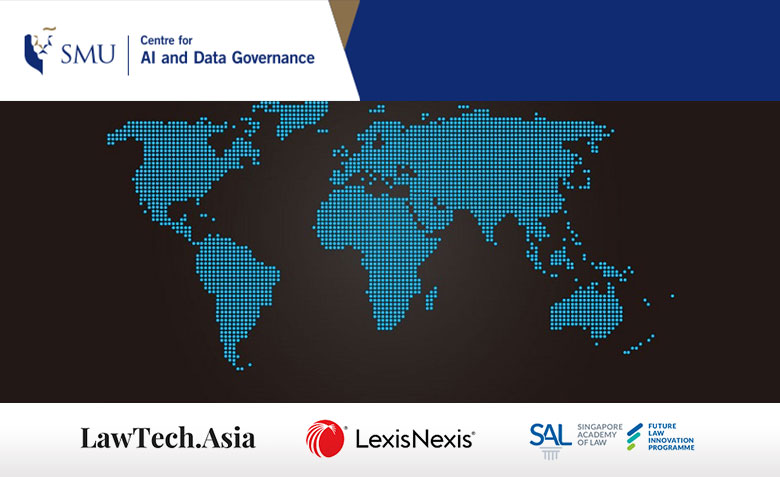
This presentation will consider personal identity in a time of rapid technological change. It is organized around three sets of questions. First, what does the shift from privacy to data protection tell us about the nature of personal identity in a digital world? Secondly, how has the expansion of anonymous and pseudonymous interactions challenged the ability of public authorities to regulate online behaviour? Thirdly, at what point (if ever) should the increasing autonomy of AI systems lead us to consider recognizing their own personhood?
|
Professor Simon CHESTERMAN |
Professor Simon Chesterman is Dean of the National University of Singapore Faculty of Law. He is also Editor of the Asian Journal of International Law. Educated in Melbourne, Beijing, Amsterdam, and Oxford, Professor Chesterman's teaching experience includes periods at the Universities of Melbourne, Oxford, Southampton, Columbia, and Sciences Po. From 2006-2011, he was Global Professor and Director of the New York University School of Law Singapore Programme. Prior to joining NYU, he was a Senior Associate at the International Peace Academy and Director of UN Relations at the International Crisis Group in New York. He has previously worked for the UN Office for the Coordination of Humanitarian Affairs in Yugoslavia and interned at the International Criminal Tribunal for Rwanda. Professor Chesterman is the author or editor of seventeen books, including Law and Practice of the United Nations (with Ian Johnstone and David M. Malone, OUP, 2016); One Nation Under Surveillance(OUP, 2011); You, The People (OUP, 2004); and Just War or Just Peace? (OUP, 2001). He is a recognized authority on international law, whose work has opened up new areas of research on conceptions of public authority - including the rules and institutions of global governance, state-building and post-conflict reconstruction, the changing role of intelligence agencies, and the emerging role of artificial intelligence and big data. He also writes on legal education and higher education more generally. |
|
David ALFRED |
David N. Alfred is Chief Counsel to Singapore’s Personal Data Protection Commission. He has advised the Commission since it was established in 2013 on data protection policy and legislation, international aspects of data protection, data protection compliance, enforcement actions and appeals. In addition to his experience in data protection, he has more than 15 years’ experience advising on various legal aspects of telecommunications, digital technology and the Internet. David is active in outreach to the legal community on data protection issues and in promoting the development of data protection law. He co-authored the chapter on Cross-border Issues in Data Protection in Data Protection Law in Singapore: Privacy and Sovereignty in an Interconnected World (2nd edition). He also leads the development and publication of the Commission’s annual Personal Data Protection Digest, which is now in its third year. David holds LLB and LLM degrees from the National University of Singapore and an MBA from the University of Chicago. He also holds certifications in information privacy and has been designated a Fellow of Information Privacy by the International Association of Privacy Professionals. |
|
|
|
||
|
Zechariah YAP Jia Qing |
Jia Qing is currently a research assistant on regulating artificial intelligence at the National University of Singapore Faculty of Law, and the Founding Executive Director of the Emerging Technologies Policy Forum, a research collective advocating for a technically-informed approach to emerging tech policy and law. Before this, he founded a startup to encourage accountable and reproducible scientific research in artificial intelligence, and a global movement to bring greater accessibility to offline AI education. Through the NVIDIA Deep Learning Institute, he taught deep learning to academics, roboticists and sovereign wealth fund data scientists, and was also a guest data science instructor at General Assembly. Jia Qing has given AI workshops and talks at international conferences like the NVIDIA AI conference, Yunqi2050 in Hangzhou by Alibaba Cloud founder Wang Jian, the ReWork Deep Learning Summit and TEDxSUTD. |
|
|
|
||
|
Tony LAI |
Tony Lai is an Entrepreneurial Fellow at the Stanford Center for Legal Informatics (CodeX) and a co-founder of Legal.io, working on applied research and innovation in the design of legal service delivery systems, with a focus on ecosystem engineering to support trusted exchange and value flow. Tony holds Bachelors and Masters degrees in Modern History from Oxford University, completed law school in England, then gained 10,000 hours experience at an international law firm advising on commercial, corporate and regulatory matters for the technology, communications and media industries in Europe, Asia and Africa. At Stanford, Tony gained his Master of Laws as part of the Law Science and Technology Program. Given the freedom to design an interdisciplinary course, Tony learnt from leading social entrepreneurs at the Urban Studies department and spent six months working with a team of graduate students at Stanford’s d.school to reinvent the museum experience. Since graduating, Tony has been on the teaching team for the joint Harvard/Stanford class, Ideas for a Better Internet and helped research & design the first Legal Technology and Informatics course to be taught at Stanford Law School. Tony was on the founding team of StartX, the top-tier, Stanford-affiliated startup accelerator, where he continues to advise on legal and social innovation support. He is on the board of directors for Shareable, the leading media outlet for the sharing economy, and regularly hosts modern nomads from around the world at The Embassy Network, a future-oriented co-living community, in San Francisco. |
|